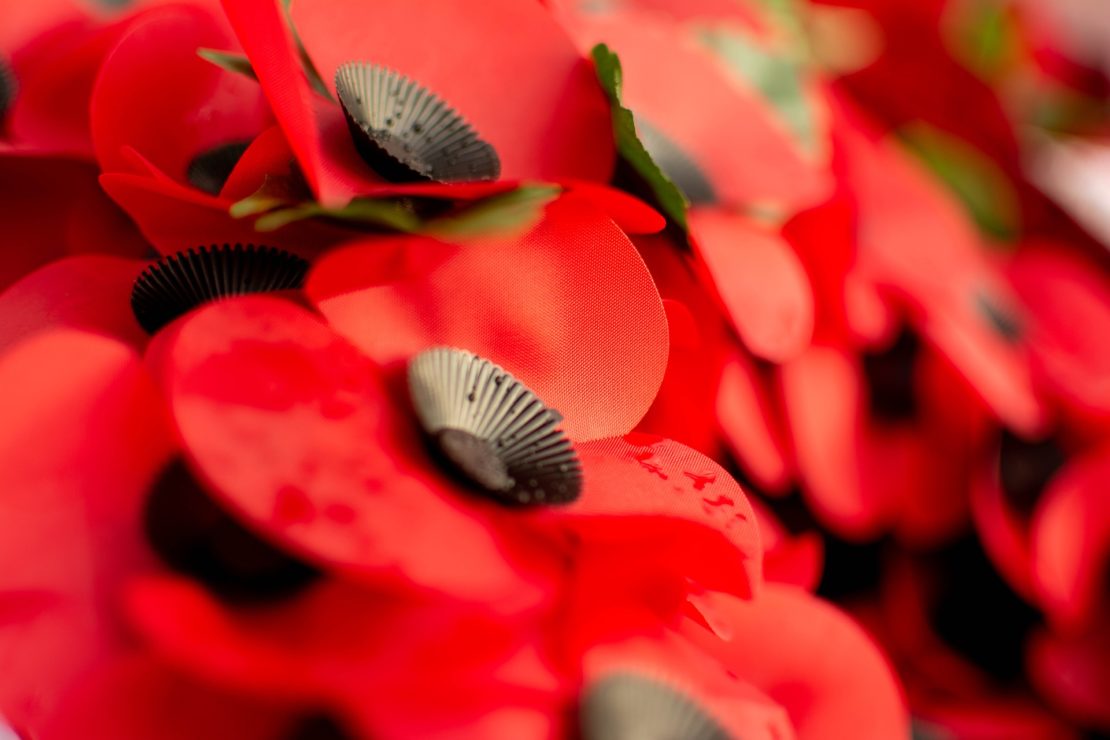Christmas commercialism has gotten out of hand, and it’s making us forget about honour

The holiday season is a time of many wonderful traditions: gingerbread cookies, family meals, presents, and ridiculous debates about the social acceptability of various pleasantries.
Christmas trees appear in windows, Ben Isitt protests the decorations downtown, Michael Bublé wakes from hibernation, and retail workers crumple into quaking heaps upon hearing “Jingle Bell Rock” for the 10 thousandth time.
It’s a wonderful time of year, but these days it comes too soon.
Skeletons and cobwebs come down, snowmen and lights go up, Starbucks addicts switch from pumpkin spice to eggnog lattes, and gaggles of hurried shoppers awkwardly avoid the Royal Canadian Legion members who are trying to hand out poppies.
This is a problem, because there actually is a holiday between Halloween and Christmas — and it isn’t Black Friday. It’s Remembrance Day.
Remembrance Day, originally “Armistice Day,” began in most of the former British Empire in 1919, to commemorate the Nov. 11 armistice that ended the First World War.
Since 1931, when the Canadian government enshrined Remembrance Day in federal law, Nov. 11 has been a day to honour the sacrifice of fallen servicemen and women. The two minutes of silence at 11:00 a.m., the wearing of red poppies, playing of the British bugle call “The Last Post,” and recitation of Canadian First World War field surgeon Lieutenant-Colonel John McRae’s poem “In Flanders Fields” have become customary.
But, the retail sector’s eagerness to jumpstart the Christmas rush has edged out Remembrance Day in terms of importance. Immediately after Halloween, or even before, Christmas-themed commercialism erupts.
It’s still October, but countdowntoredcups.com, which tracks the time remaining until Starbucks’ infamous red cups return for the holiday season, already says that Starbucks Canada will begin using the cups on Nov. 7 — one week after Halloween.
Even Student Union Building businesses are guilty of rushing into the holiday season — SubText has Christmas cards on display a week before Halloween.
Nicholas Randall, a gift shop in Oak Bay, usually decorates for Christmas over the first weekend in November. If they don’t get their Christmas stock on the shelves, the shop owner says, customers want to know why.
Ivy’s Bookshop, just down the block from Nicholas Randall and a red cup-filled Starbucks, refuses to decorate for Christmas before Nov. 12, and sets up a Remembrance Day-themed window display every year. Many customers thank the staff for acknowledging the occasion.
This obsession with beginning the Christmas season as soon as possible leaves little space for proper remembrance, especially as Canada’s involvement in the war in Afghanistan recedes into history, and people forget that the duty to honour those who died for them doesn’t have an expiration date.
Today, we look back on the First World War as a pointless slaughter. But at the time, many viewed the war as a fight between liberal democracy and militaristic authoritarianism. Approximately 61 000 Canadians died. Armistice Day was meant to commemorate the sacrifice of these soldiers in the hope that nothing like the war to end all wars would ever happen again.
In simplest terms, the Second World War was a fight between good and evil. The motives and actions of Allied nations, leaders, officials, and soldiers were not always pure, but it is accurate to say that the 42 000 Canadians who were killed were fighting an evil empire.
The War in Afghanistan was the Canadian Armed Forces’ largest effort since 1945. 158 Canadian soldiers died. The 12-year mission is controversial, but the overall goal of expunging the Taliban so that Afghanistan could return to being a stable, safe nation was an honourable one.
These are not the only wars to take the lives of Canadian soldiers, though they are some of the most memorable. No matter which war, the men and women who stood up to fight for their country and died in uniform deserve to be remembered with respect and gratitude, free from crass commercialism.
Remembrance Day is not about glorifying war, and it has nothing to do with militarism. It’s not really even about celebrating current military members. In fact, as a soldier once told me, if you’re still breathing, Remembrance Day is not about you. It is and always has been about honouring the sacrifice of those who never made it home. This is not a day that should be overshadowed by the retail sector, and the fact that we value our Christmas shopping over remembering the fallen is an indictment of Canadian society.
No businesses will go bankrupt if they hold off on embracing the Christmas madness until Nov. 12. Put down the advent calendars and ugly Christmas sweaters; poppy season hasn’t ended yet.







